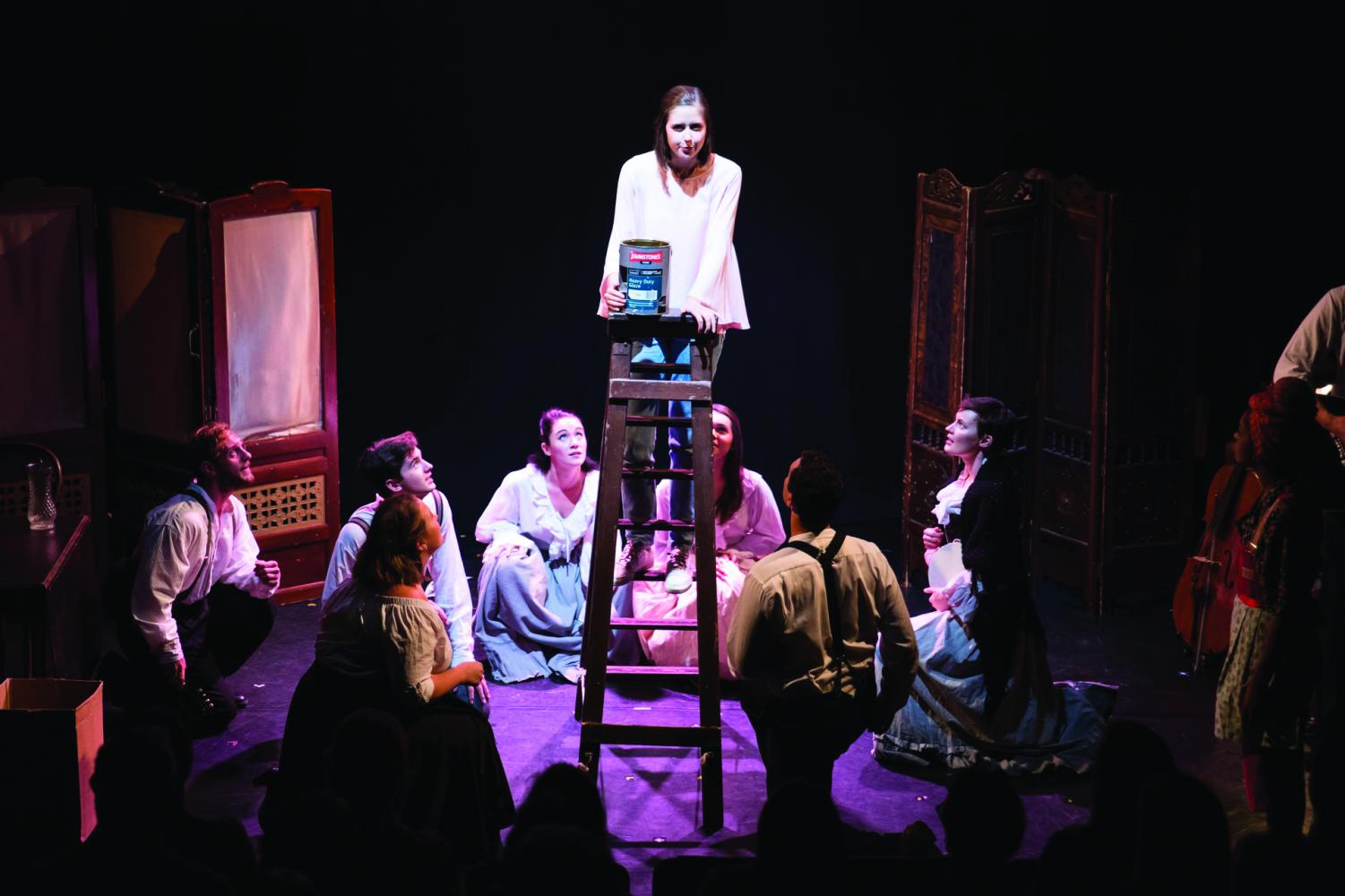Northwestern theater students debut new shows at the Edinburgh Fringe for the second year
October 12, 2018
“Legacy: The Book of Names” was the title of one of the American Music Theater Project’s two shows premiered at the Edinburgh Festival Fringe, but it’s also fitting nomenclature for Bienen junior Pablo Laucerica’s experience with the show’s creative process.
“We had this joke that my character, while his storyline stayed the same…his name changed a thousand times,” he said. “(The creative team) was trying to figure out where he could be from and where would be the most compelling for him to have this journey. At first I was Irish and my name was Seamus McNally, then they changed it to Simon, then to Szymon, then back to Simon.”
It’s a small price to pay for the opportunity to originate a role at the largest creative festival in the world. For the second year, AMTP brought together Northwestern musical theater certificate students with master students from the Royal Conservatoire of Scotland to debut two new hour-long musicals at the Fringe.
Last year’s shows — “Atlantic: A Scottish Story” and “Atlantic: America & The Great War — were directly linked by continuing characters and storylines, but the team decided to connect this year’s shows with the overarching theme of “Legacy,” AMTP Producing Director Brannon Bowers said. “Legacy: A Mother’s Song” explored the idea of motherhood through the lives of three women from different time periods; “Legacy: The Book of Names” showed a day in the life of immigrants coming through Ellis Island.
Tania Azevedo — co-creator and director of “A Mother’s Song” — said she and her co-creator knew from the beginning they wanted the show to have a feminist agenda and explore the theme of choice. They began to play with the concept of motherhood as a choice: Was it ever a choice, and if if was, how do you make that decision and what are the consequences?
“Especially in musical theater, it’s fairly uncommon to see storylines that have women at the center that aren’t rooted in romantic love,” she said. “We thought that putting that storyline (of motherhood) against different socioeconomic backgrounds would allow for a really rich exploration of what motherhood is in relationship to a female identity.”
The storylines of the three women were connected by the thread of Scottish folk music woven into the show. All of the music was performed by the actors onstage, who would sing and play instruments at the same time, acting as a traveling band of storytellers.
The show’s central character, Sara, is in a same-sex relationship in New York and realizes she wants children, though her partner does not. As a young, queer female artist, Azevedo said she deeply connected with the character’s struggle as a feminist to reconcile the cost of motherhood with her career.
Azevedo said she and her co-creator didn’t want to make the show explicitly political, rather, they tried to create a character-driven work that would speak for itself.
“We briefly touched upon what choice has looked like for women historically and what it looks like now,” she said “We’re in a world in which on the surface we have more choice than ever before, but what (are) the emotional consequences of making that choice?”
While the creative team had almost a full year to create the show, the performers rehearsed together in Glasgow for just two and a half weeks before they opened in Edinburgh. Laucerica said he was impressed by the dedication and work ethic of the Royal Conservatoire students, who were also rehearsing for a production of “Dirty Rotten Scoundrels” at the same time as “Legacy.”
While Laucerica has extensive performance experience, this is his first time originating a role. He said it was interesting to approach a character without any reference for performance history.
“(It was cool) to not have any basis of who had done this character beforehand (and) really make it my own,” he said. “I got to tell them what I thought the character would do in (each) scenario, I got to work with the composer and lyricist to change certain melody lines and lyrics to be more compelling in the scenario. I have the highest voice in the world but no low range, so I got to be like, ‘Hey, maybe we can change the key of this song.’”
Laucerica said it was inspiring to get to work with an acting and creative team of people from all over the world, as well as experience the multitude of diversity at the Fringe and see how unifying theater can be.
Featuring roughly 55,000 performances attended by over 2.7 million people, the Fringe is the largest arts festival in the world, drawing diverse, international crowds. Bowers said the students only had to perform an hour a day, then had the rest of the time to explore all the different productions being presented at the Fringe.
“It’s really unique to see theater and art and comedy from all over the world and build a greater context for what art can be across the world, not just in the U.S. and Evanston,” he said. “It really broadens their minds.”
Email: janerecker2019@u.northwestern.edu
Twitter: @janerecker

